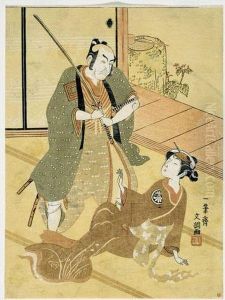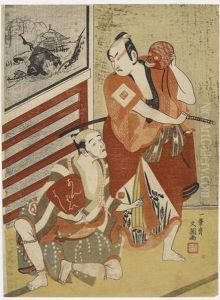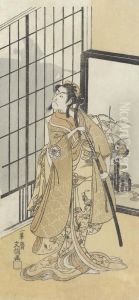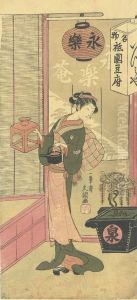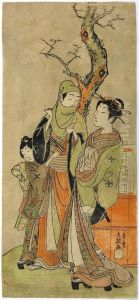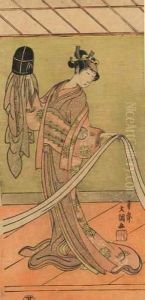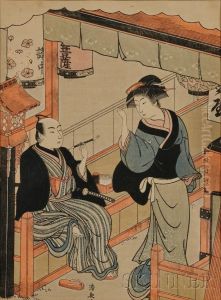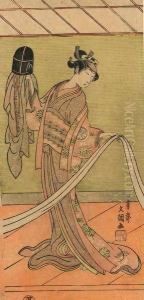Ippitsusai Buncho Paintings
Ippitsusai Buncho was a Japanese ukiyo-e artist known primarily for his woodblock prints. His exact birth and death dates are not recorded, but he is known to have been active from around 1765 to 1792. Buncho was a contemporary of other great ukiyo-e masters such as Suzuki Harunobu, Kitao Shigemasa, and Isoda Koryusai, who were prominent figures during the Edo period in Japan.
Buncho’s work is characterized by his distinctive style of portraying actors, beauties, and scenes from daily life, with a particular focus on the kabuki theater. His prints often featured bold compositions and a refined use of color. He had a talent for capturing the dynamism and expression of kabuki actors, which made his prints popular among theatergoers who wanted souvenirs of their favorite performances and actors.
Although Buncho produced a variety of prints, he is perhaps best known for his yakusha-e (actor prints). He was particularly adept at capturing the spirited nature of the kabuki theater and its actors, and he often portrayed them in dramatic poses and with expressive facial features. His actor prints are considered to be some of the finest of the period.
Despite his contributions to the ukiyo-e genre, relatively little is known about Buncho's life, and his work was eventually overshadowed by that of other artists like Utamaro and Sharaku, who became more famous for their actor and bijinga (pictures of beautiful women) prints. Nevertheless, Ippitsusai Buncho's prints are valued by collectors and scholars for their beauty and historical significance in the evolution of Japanese woodblock printing.
The lack of information regarding his death, as well as the scarcity of personal details about his life, is not uncommon for artists of the Edo period. Many artists of the time were primarily known by their work rather than their personal histories. Today, Buncho's prints can be found in various museums and collections around the world, contributing to the understanding and appreciation of ukiyo-e art.
